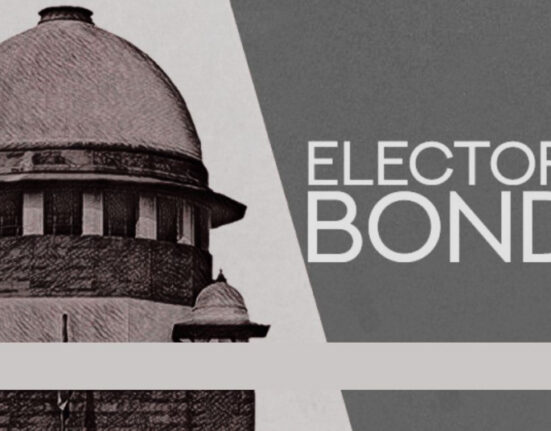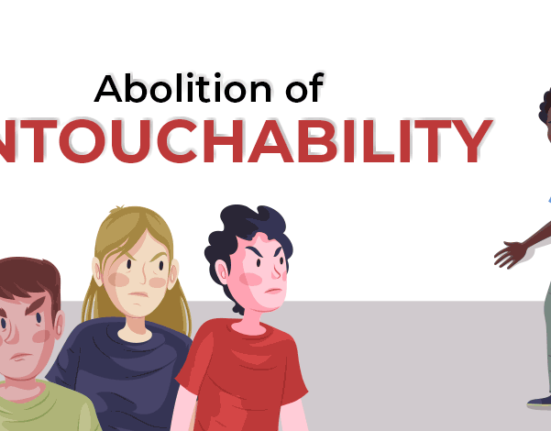This article, “Arbitrary Arrest and Detention” is written by SITANSHU SHEKHAR SRIVASTAVA, a 4th-year law student at MIT WPU.
Introduction
India is the largest democracy in the world, its constitution must hold fast to the basic principles of democracy. Part III of the Constitution of India focuses on the protection of fundamental civil and human rights by its members by including fundamental rights. One of these basic rights is Article 22, which ensures protection against arbitrary detention or arrest under specific circumstances. This right extends to both citizens and non-citizens, allowing them to challenge arbitrary or arbitrary arrest or detention resulting from an abuse of the right.
Article 22 of the Constitution of India Contradicts the Freedoms Guaranteed by Article 21 of the Right to Life and Liberty It was originally designed to protect the integrity of the Constitution from threats on society Still arbitrary, subject to interpretation Indian history has faced this criticism, 1975 Quickly serving as a glaring example of the abuse that Article 22 can do to International treaties such as the International Covenant on Civil and Article 9(1) of the Political Rights and Article 9 of the Universal Declaration of Human Rights emphasize the importance of protecting individuals, emphasizing the importance of fundamental rights as an integral part of Article 22 of the Constitution. This article provides an overview of the protection from arrest and arbitrary detention enshrined in the Constitution of India.
Laws on Preventive Detention
Article 22(4) to (7) delineates the procedures that must be followed when an individual is apprehended and confined under any legislation permitting preventive detention. In the realm of Indian laws, there exists no official definition of preventive detention, but it is essentially the opposite of “punitive” detention. Preventive detention is sometimes regarded as a “necessary but undesirable” aspect of the Constitution because it can be employed in various ways, not all of which are equitable and just. People may be incarcerated to prevent actions that could compromise the sanctity of the Constitution, endanger state security, harm India’s international relations, or disrupt public order.
- The Preventive Detention Act of 1950: The Act was passed as a temporary measure to give the central and state governments the power to detain a person who poses a risk to India’s security, defence, relations with other countries, public order, and the continuation of services and essentials that the community needs.
- Maintenance of Internal Security Act, 1971: The Preventive Detention Law was brought back to life in the form of the Maintenance of Internal Security Act, 1971.
- Prevention of Black Marketing and Maintenance of Supplies of Essential Commodities Act, 1980: In less than two years, the preventive detention law was brought back in the form of the Prevention of Black Marketing and Maintenance of Supplies of Essential Commodities Act, 1980.
- National Security Act, 1982: In 1980, the President signed the National Security Ordinance, which was later replaced by the Act. It allowed for the preventive detention of people who were responsible for starting communal or caste riots that were a serious threat to the security of the state. In the case of A.K. Roy v. Union of India (1981), the legality of this Act rejected the idea that it was unclear or arbitrary.
- Terrorist and Disruptive Activities (Prevention) Act of 1987: The act was passed to stop terrorism in the country, and to do that, the state governments were given a lot of power. There was a lot of misusing of these powers, so in Kartar Singh v. State of Punjab (1994), the Apex Court put limits on how they could be used.
Article 22: protection against preventive detention laws in the Constitution
Prior of the 44th Amendment Act of 1978, Article 22(4)(a) provided that no person could be detained under the Preventive Detention Act for more than three months except by an Advisory Committee of persons qualified to serve as a Tribunal the King has approved reasonable judges.
If the advisory panel deemed the detention unsuitable, the government was obliged to revoke the detention order. However, in similar circumstances, the defendant could serve a term of imprisonment.
But detention in the latter case cannot exceed the maximum period permitted by any law established by Parliament for that particular class of detainees, as provided in Article 22(1). Any such ordinance authorizing detention for a period exceeding three months without the prior approval of the advisory board, shall specify the classes reserved in its application and the circumstances under which it determines the application
To date, these comments are relevant because the proposed changes have not been implemented. The objective of the proposal review is to reduce more than three months which is not the subject of the proposed review, to reduce the membership of the Saklikar Mandal to include the Chief Justice of the concerned High Court as the Chief Justice of Sallah. empowered him to make laws.
In the Huidrom Konungjao Singh v. State of Manipur (2012) case, it was established that the State possesses the authority to issue a detention order against an individual who is already under arrest, provided that the State can prove that it had prior knowledge of the person’s existing custody and that there are substantial grounds to suspect potential harm when the order is contested.
In the Ramachandra A. Kamat v. Union of India (1980) case, it was noted that when a person under detention is provided with the reasons for their detention, they have the entitlement to request copies of any remarks and records referenced in those reasons. This is to enable the detainee to effectively present their case. The authorities should promptly furnish these documents upon request, and the definition of a reasonable timeframe for this provision depends on the unique circumstances of each individual case.
Article 22 is an incomplete as a code
In the case of Maneka Gandhi v. Union of India (1978), it was determined that the law governing preventive detention must not only meet the requirements of Article 22 of the constitution, but also to meet the requirements of Article 21. In other words, the mechanism outlined in the law governing preventive detention must be reasonable, just, and fair according to Articles 14, 19, and 21 of the Indian Constitution.
Recently, some 5,558 people were jailed in Uttar Pradesh for protesting against the Citizenship Amendment Act (CAA). Although these numbers varied from state to state, it is important not to overlook the situation in Kashmir when Article 370 of the Constitution was repealed. In addition, many politicians who disagree with the decisions on Article 370 have been arbitrarily arrested
Violation of the fundamental right of freedom of speech against reasonable restrictions is common in such cases Kanhaiya Kumar, Umar Khalid, Dalit activist Chandrashekhar Azad, Dr. Several prominent figures, including student leaders like Kafeel Khan, have been detained in government jails, in violation of fundamental rights and personal freedoms guaranteed by the Constitution of India
Owing to the scenarios above and many in the past, the existence of Article 22 of the Constitution has often been the subject matter of debates with contentions both for and against its function. Although we continue to presume the reckless implementation of this law by the controlling authorities, what we can think of is a more governed process in executing this provision.
Conclusion
In conclusion, Article 22 of the Indian Constitution, which deals with preventive detention, has been a subject of both praise and criticism in its application. It is essential to recognize that while this provision serves a purpose, in maintaining law and order, its potential for misuse and abuse has been evident in various instances throughout India’s history. Recent events, such as the detention of thousands during the CAA protests and the arrests of political figures, have raised concerns about the proper execution of this constitutional provision. These incidents have often resulted in violations of fundamental rights, particularly the freedom of speech and personal liberty guaranteed by the Constitution.
The Indian judiciary, through cases like Huidrom Konungjao Singh v. State of Manipur and Ramachandra A. Kamat v. Union of India, has attempted to strike a balance by imposing certain safeguards and criteria for detention. Additionally, the landmark case of Maneka Gandhi v. Union of India has underscored the importance of aligning preventive detention laws with the broader principles of justice, fairness, and individual rights enshrined in Articles 14, 19, and 21 of the Constitution.
In light of these debates and past experiences, it is crucial to consider a more regulated and judicious application of Article 22, ensuring that it fulfils its intended purpose without encroaching on the fundamental rights of Indian citizens. Striking this balance will be essential to upholding the principles of democracy and protecting individual liberties, which are at the heart of India’s constitutional framework.
Reference
https://environment-rights.org/rights/right-to-freedom-from-arbitrary-detention
https://www.ohchr.org/en/about-arbitrary-detention







Leave feedback about this